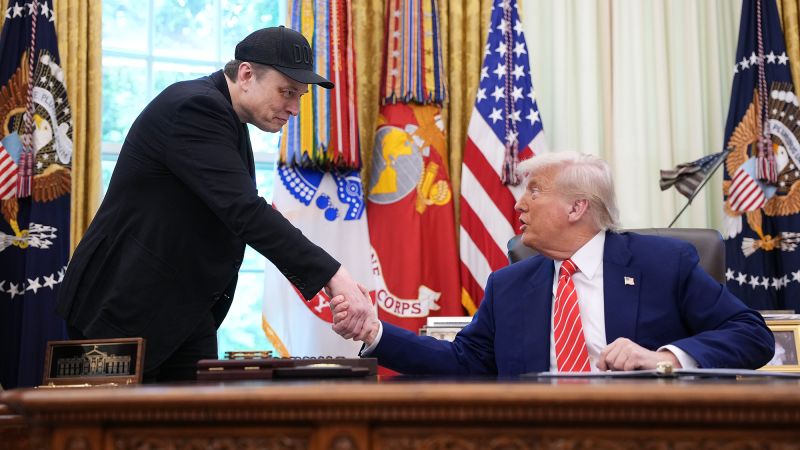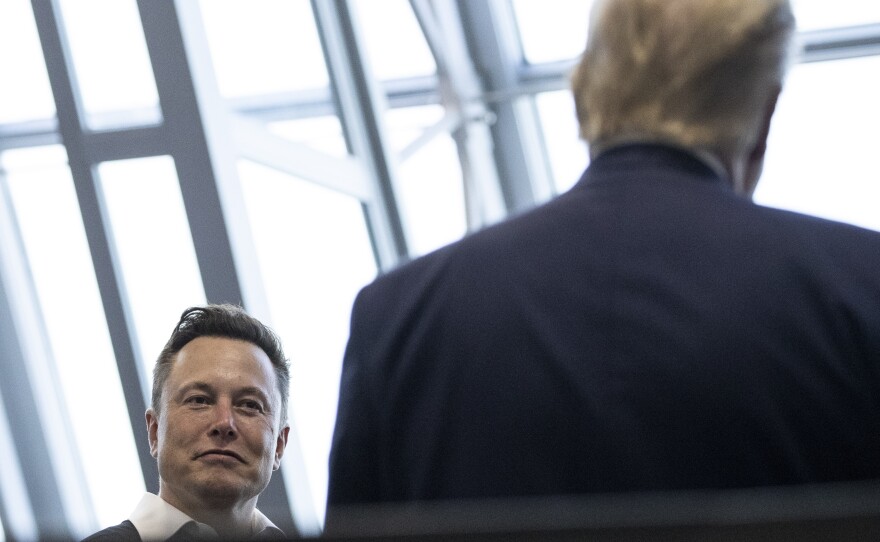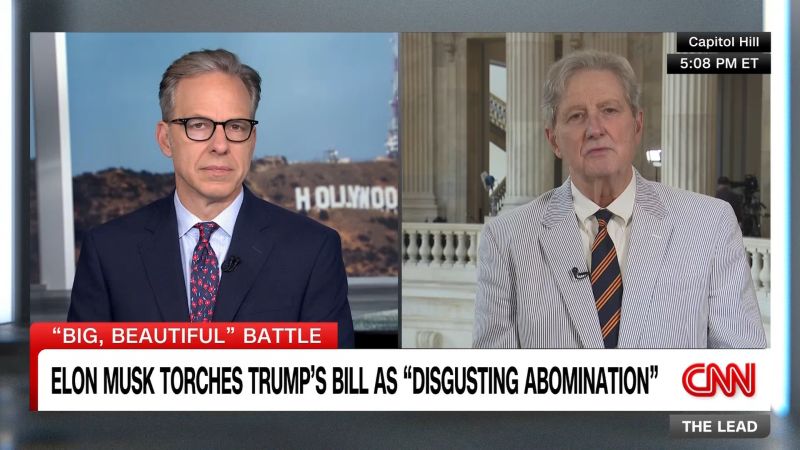Ongoing Trump-Musk Feud and Its Market Impact

A dramatic and highly public feud has erupted between President Donald Trump and technology magnate Elon Musk, marking a stark downturn in what was once a notable alliance. This war of words, played out on their respective social media platforms, has not only captured public attention but has also sent significant tremors through the financial markets, particularly affecting Musk's flagship electric vehicle company, Tesla, and raising broader questions about the volatile intersection of business, politics, and powerful personalities.
The relationship between Trump and Musk had previously been characterized by cooperation. Musk had been a significant financial backer, reportedly donating over $290 million to Trump and other Republicans during the 2024 election cycle. Following Trump's return to office, Musk became a trusted adviser and a frequent White House visitor. He was appointed to helm the Department of Government Efficiency (DOGE), an initiative by the Trump administration aimed at reducing federal workforce and cutting costs. Trump had even shown public support for Tesla, purchasing one of its vehicles earlier in the year.
The catalyst for the current schism appears to be Musk's vehement criticism of President Trump's sweeping domestic agenda, dubbed the "Big Beautiful Bill." Musk publicly denounced the legislation as a "disgusting abomination" and a "massive, outrageous, pork-filled Congressional spending bill," stating he "just can't stand it anymore." This outspoken opposition from a former ally evidently displeased the President, who noted his disappointment and signaled a souring of their relationship.
The dispute rapidly escalated into a public spectacle on social media. Musk accused Trump of being mentioned in the controversial "Epstein files" and boldly claimed that "Without me, Trump would have lost the election." President Trump retorted by stating Musk was exhibiting "Trump derangement syndrome" and that the billionaire had been "wearing thin" for about a month, leading to Trump asking him to leave his advisory role. Trump also mentioned his decision to take away electric vehicle mandates, a move potentially impacting Tesla.
The financial ramifications of this fallout were immediate and severe for Tesla and Musk. On a single Thursday, Tesla's stock plummeted by 14%, erasing approximately $152 billion from the company's market capitalization and pushing it below the $1 trillion benchmark. Elon Musk's personal net worth consequently dropped by an estimated $34 billion. This volatility sparked significant concern among Tesla investors, worried about alienating both Democratic and Republican customer bases and the potential loss of crucial government support, including EV tax credits (which the bill aimed to phase out) and regulatory approval for Tesla's Full Self-Driving (FSD) technology.
President Trump did not hesitate to respond with threats against Musk's broader business empire. He publicly suggested that the "easiest way to save money" in the federal budget would be to terminate Musk's governmental subsidies and contracts, specifically mentioning SpaceX. Trump also indicated that the red Tesla vehicle he had acquired earlier in the year might be given away or sold. These statements highlighted the potential risks for Musk's companies, many of which, like SpaceX and its Starlink satellite internet service, rely on government contracts with entities such as NASA and the FAA.
Industry analysts and experts weighed in on the unprecedented clash. Dan Ives of Wedbush Securities described Musk's confrontational approach towards Trump as a "potentially very hazardous path," though he remained bullish on Tesla's long-term prospects, particularly its autonomous driving ambitions which he valued at $1 trillion for Tesla alone. Ives also noted that "Musk needs Trump and Trump needs Musk for many reasons." Bill George, an executive fellow at Harvard Business School, termed the feud a "brutal breakup," cautioning that one should "never go to war with the president of the United States" due to potential "collateral damage," and added that a CEO cannot effectively run their business while also working in government. Jeffrey Sonnenfeld of the Yale Chief Executive Leadership Institute commented starkly that "there is no honor among thieves" and that the situation resembled "two mob bosses that have had a parting of ways."
Despite the acrimony, there were signs of potential de-escalation. U.S. stock market futures, including those for Tesla, showed some recovery following reports that White House aides might speak with Musk on Friday to calm tensions. Some sources indicated a call between Trump and Musk was scheduled to broker a truce, although other White House officials initially downplayed the President's direct involvement. Musk also appeared to walk back an earlier, seemingly impulsive threat to decommission SpaceX's Dragon spacecraft, a crucial component of NASA missions.
The public spat has left Elon Musk in a precarious political position. Having previously aligned with Trump and conservative causes, he risks alienating that base with this feud. Simultaneously, his past support for Trump makes him an unlikely ally for Democrats. Perhaps sensing this, Musk polled his followers on X (formerly Twitter) about the need for a new political party representing the "80% in the middle," a suggestion that reportedly garnered interest from figures like Mark Cuban. This raises questions about Musk's future political allegiances and influence.
The Trump-Musk saga continues to unfold, serving as a compelling case study of the complex and often perilous interplay between powerful business leaders and the political establishment. The long-term consequences for Musk's vast business empire, including Tesla and SpaceX, and their relationship with the U.S. government remain uncertain. What is clear is that this episode offers a stark cautionary tale for CEOs navigating the increasingly polarized and personality-driven landscape of modern politics.












